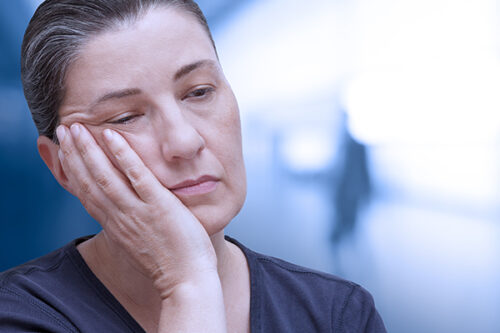Common Health Problems: Diverticular Disease (Diverticulosis & Diverticulitis)
Herniation through the muscle wall is caused by increased pressures upon the colon that are necessary to move the small hard fecal mass that is the usual consequence of the American low-fiber diet. Laws of physics explain that constricting pressures in a hollow organ are higher when the diameter of the organ is small. The few hard fecal pellets left in your gut by hamburgers and fiber-less white bread fail to fill the colon to a capacity that allows for easy, low pressure flow of the residue.
Development of diverticular disease is not an inevitable part of growing older. The colons of people living in underdeveloped countries show a virtual absence of diverticular disease. Healthy, low, pressures in the colon happen when the diet is high in starches, vegetables, and fruits, with their generous content of fiber.
Contrary to what was once popular opinion, the addition of fibers in the form of brans or high fiber foods has relieved symptoms in 90% of cases of severe colon disease, even with recurrent pain and bleeding. A high fiber diet will also decrease the likelihood of developing new diverticuli. The diverticuli already formed are permanent herniations of the colon, and will not disappear except by surgical removal, which is rarely indicated.
Related Video
+-Recommendations
+-A starch-based, high-fiber diet for the relief of chronic diverticular problems. There is no reason to avoid seeds or any other natural plant foods, as particles from these will not get stuck in your diverticuli and cause inflammation.
References
+-Manousos, O. Diet, and other factors in the aetiology of diverticulosis: an epidemiological study in Greece. Gut 26:544, 1985
Gear, J. Symptomless diverticular disease and intake of dietary fibre. Lancet 1:511, 1979
Segal, I. Diverticular Disease in Urban Africans in South Africa. Digestion 24:42, 1982
Ohi, G. Changes in dietary fiber intake among Japanese in the 20th century: a relationship to the prevalence of diverticular disease. Am J Clin Nutr 38:115, 1983
Hyland, J. Does a high fibre diet prevent the complications of diverticular disease? Br J Surg 67:77, 1980
Findlay, J. Effects of unprocessed bran on colon function in normal subjects and in diverticular disease. Lancet 1:146, 1974
Leahy, A. High fibre diet in symptomatic diverticular disease of the colon. Ann R Coll Surg Engl 67:173, 1985
Recommended Articles

Common Health Problems: Fatigue

What Is the Life Expectancy with Heart Disease and Diabetes?






